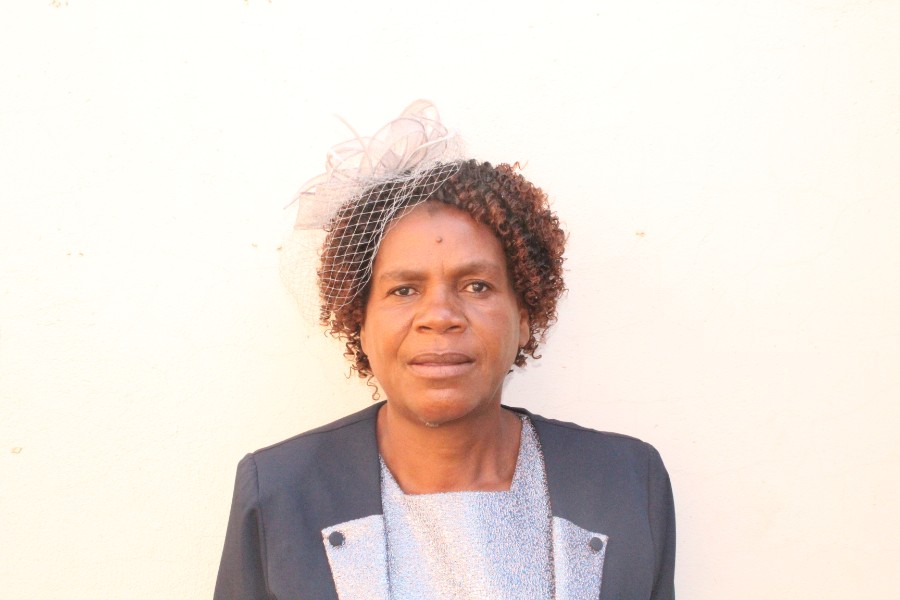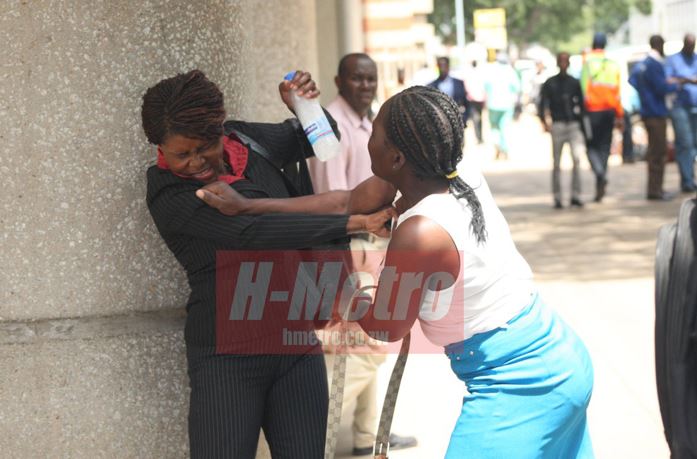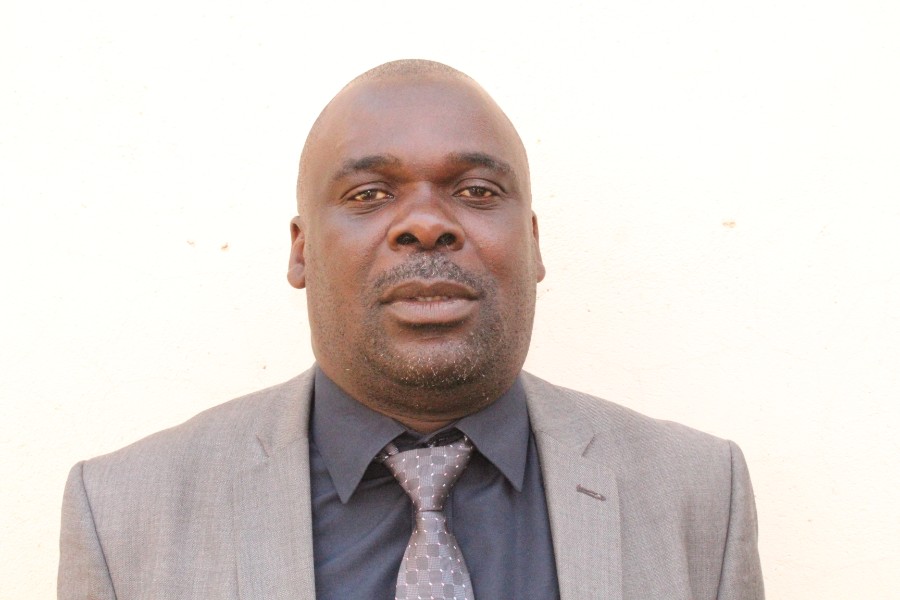
Happening Now
Today marks the first day of the 16 Days Campaign to end Gender based violence against and on #AmakhosikaziChatroom @AmakhosikaziM Women discuss the Effectiveness of laws in curbing Gender based violence (GBV) IN Zimbabwe.
#16DaysofActivism2020
#OpenParlyZw
Today marks the first day of the 16 Days Campaign to end Gender based violence against and on #AmakhosikaziChatroom @AmakhosikaziM Women discuss the Effectiveness of laws in curbing Gender based violence (GBV) IN Zimbabwe.
#16DaysofActivism2020
#OpenParlyZw

Topics of discussion:
•Why do GBV remain high in Zimbabwe when we have so many laws to curb them?
•What led to the sudden rise of GBV during the COVID-19 pandemic?
#16DaysofActivism2020
#OpenParlyZw
•Why do GBV remain high in Zimbabwe when we have so many laws to curb them?
•What led to the sudden rise of GBV during the COVID-19 pandemic?
#16DaysofActivism2020
#OpenParlyZw
•How has been the government and human rights organisation’s response to GBV causes during the lockdown?
•What can the government and human rights organization do to improve their response to GBV especially in pandemics like COVID-19
#16DaysofActivism2020
#OpenParlyZw
•What can the government and human rights organization do to improve their response to GBV especially in pandemics like COVID-19
#16DaysofActivism2020
#OpenParlyZw
With invited guests Inspector Noma Msebele (ZRP Public relations Assistant)
Thandekile Ngwenya (Legal Rights Defender)
Tholakele Mahlangu Khumalo (The Haven Trust Director)
#16DaysofActivism2020
#OpenParlyZw
Thandekile Ngwenya (Legal Rights Defender)
Tholakele Mahlangu Khumalo (The Haven Trust Director)
#16DaysofActivism2020
#OpenParlyZw
Noma Msebele (ZRP Public relations Assistant):
As the police Victim friendly unit is the only department which deals with issues to do with gender based violence and its in every police station in the country.
@Thwithakazi
#16DaysofActivism2020
#OpenParlyZw
As the police Victim friendly unit is the only department which deals with issues to do with gender based violence and its in every police station in the country.
@Thwithakazi
#16DaysofActivism2020
#OpenParlyZw
Noma Msebele (ZRP Public relations Assistant)
"The issue we encounter is that people are not forced to withdraw cases to do with gender abuse. We have seen many people getting their spouses arrested but withdraw a case the next morning."
#16DaysofActivism2020
#OpenParlyZw
"The issue we encounter is that people are not forced to withdraw cases to do with gender abuse. We have seen many people getting their spouses arrested but withdraw a case the next morning."
#16DaysofActivism2020
#OpenParlyZw
Noma Msebele (ZRP Public relations Assistant) :
"Yes as the police we are hungry but not that corrupt to let abusers free. If you feel that your case was not handled well you can approach the officer in charge of the station so that the case can be re-visited"
"Yes as the police we are hungry but not that corrupt to let abusers free. If you feel that your case was not handled well you can approach the officer in charge of the station so that the case can be re-visited"
Noma Msebele (ZRP Public relations Assistant) :
"For couples who wish to seek counselling we have a department that deals with that and we can orgasnise for you to meet"
@Thwithakazi
#16DaysofActivism2020
#OpenParlyZw
"For couples who wish to seek counselling we have a department that deals with that and we can orgasnise for you to meet"
@Thwithakazi
#16DaysofActivism2020
#OpenParlyZw
Noma Msebele (ZRP Public relations Assistant) :
"As the police we deal with the accused person and if we take him/her to jail it’s a plus to us, we have done our job but what happens to the victim afterwards, so we need organisations such as @AmakhosikaziM to come in and help"
"As the police we deal with the accused person and if we take him/her to jail it’s a plus to us, we have done our job but what happens to the victim afterwards, so we need organisations such as @AmakhosikaziM to come in and help"
Noma Msebele (ZRP Public relations Assistant):
"We need proper support systems to help the victims during and after the abuse. We need helpers not just activists like we have been seeing"
@GwiziSoneni
@Thwithakazi
#16DaysofActivism2020
#OpenParlyZw
"We need proper support systems to help the victims during and after the abuse. We need helpers not just activists like we have been seeing"
@GwiziSoneni
@Thwithakazi
#16DaysofActivism2020
#OpenParlyZw
Thandekile Ngwenya (Legal Rights Defender)
"We urge the spread of campaigns in the society and churches and put out the message that GBV is bad and should be stopped on women and on men as we do have men who are abused at homes."
#16DaysofActivism2020
#OpenParlyZw
"We urge the spread of campaigns in the society and churches and put out the message that GBV is bad and should be stopped on women and on men as we do have men who are abused at homes."
#16DaysofActivism2020
#OpenParlyZw
Thandekile Ngwenya (Legal Rights Defender)
“I have heard many asking if there can be a law which prevent a case from being withdrawn but we see many victims withdrawing cases everyday."
#16DaysofActivism2020
#OpenParlyZw
“I have heard many asking if there can be a law which prevent a case from being withdrawn but we see many victims withdrawing cases everyday."
#16DaysofActivism2020
#OpenParlyZw
Thandekile Ngwenya (Legal Rights Defender):
"Some fear that their spouse (breadwinner) will go to jail, some do it out if love regardless of the fact that they are badly injured”
@Thwithakazi
#16DaysofActivism2020
#OpenParlyZw
"Some fear that their spouse (breadwinner) will go to jail, some do it out if love regardless of the fact that they are badly injured”
@Thwithakazi
#16DaysofActivism2020
#OpenParlyZw
Thandekile Ngwenya (Legal Rights Defender):
“Its your own right to withdraw a case.We have people who fear what will happen to their families if abusers are thrown into jail and we cant do anything to prevent that but to adhere to their will
#16DaysofActivism2020
#OpenParlyZw
“Its your own right to withdraw a case.We have people who fear what will happen to their families if abusers are thrown into jail and we cant do anything to prevent that but to adhere to their will
#16DaysofActivism2020
#OpenParlyZw
Thandekile Ngwenya (Legal Rights Defender):
"Women don’t have adequate information on other alternatives of dealing with GBV. Its not just the police that can solve your case"
#16DaysofActivism2020
#OpenParlyZw
"Women don’t have adequate information on other alternatives of dealing with GBV. Its not just the police that can solve your case"
#16DaysofActivism2020
#OpenParlyZw
Thandekile Ngwenya (Legal Rights Defender):
"if you are scared that they will arrest and throw the perpetrator into jail you can also go to the Magistrate court and apply for protection order."
#16DaysofActivism2020
#OpenParlyZw
"if you are scared that they will arrest and throw the perpetrator into jail you can also go to the Magistrate court and apply for protection order."
#16DaysofActivism2020
#OpenParlyZw
Thandekile Ngwenya (Legal Rights Defender):
"The court can then pass a judgement and you continue living together but the perpetrator is made to stop the abuse by the courts."
#16DaysofActivism2020
#OpenParlyZw
"The court can then pass a judgement and you continue living together but the perpetrator is made to stop the abuse by the courts."
#16DaysofActivism2020
#OpenParlyZw
Thandekile Ngwenya (Legal Rights Defender):
"After getting a protection order you can go for counselling as a couple if you wish to do so. It will help both parties (females and males) from abuse"
#16DaysofActivism2020
#OpenParlyZw
"After getting a protection order you can go for counselling as a couple if you wish to do so. It will help both parties (females and males) from abuse"
#16DaysofActivism2020
#OpenParlyZw
Thandekile Ngwenya (Legal Rights Defender):
"If they go against the order and start abusing you the court will then take action against the perpetrator and give a more tense judgement because they would have not respected the courts"
#16DaysofActivism2020
#OpenParlyZw
"If they go against the order and start abusing you the court will then take action against the perpetrator and give a more tense judgement because they would have not respected the courts"
#16DaysofActivism2020
#OpenParlyZw
Tholakele Mahlangu Khumalo (The Haven Trust Director)
"We have to advocate for stiffer laws and work as a community to protected the abused women. Makokoba and Tshabalala once had good supporting networks against GBV"
#16DaysofActivism2020
#OpenParlyZw
"We have to advocate for stiffer laws and work as a community to protected the abused women. Makokoba and Tshabalala once had good supporting networks against GBV"
#16DaysofActivism2020
#OpenParlyZw
Tholakele Mahlangu Khumalo (The Haven Trust Director)
"Let us have support groups that also include the @PoliceZimbabwe"
#16DaysofActivism2020
#OpenParlyZw
"Let us have support groups that also include the @PoliceZimbabwe"
#16DaysofActivism2020
#OpenParlyZw
Tholakele Mahlangu Khumalo (The Haven Trust Director):
"Withdrawing cases of GBV because children will starve may result to your death. Lets try to have skills like selling wares.
#16DaysofActivism2020
#OpenParlyZw
"Withdrawing cases of GBV because children will starve may result to your death. Lets try to have skills like selling wares.
#16DaysofActivism2020
#OpenParlyZw
Tholakele Mahlangu Khumalo (The Haven Trust Director):
"Existing laws need your support, Laws are there and reasonably good but we do not work together to support those laws"
#16DaysofActivism2020
#OpenParlyZw
"Existing laws need your support, Laws are there and reasonably good but we do not work together to support those laws"
#16DaysofActivism2020
#OpenParlyZw
Tholakele Mahlangu Khumalo (The Haven Trust Director):
"Unless as communities work together to curb GBV no one will end it for us. Laws can be good but it depends on the communities fighting it as a community"
#16DaysofActivism2020
#OpenParlyZw
"Unless as communities work together to curb GBV no one will end it for us. Laws can be good but it depends on the communities fighting it as a community"
#16DaysofActivism2020
#OpenParlyZw
• • •
Missing some Tweet in this thread? You can try to
force a refresh








